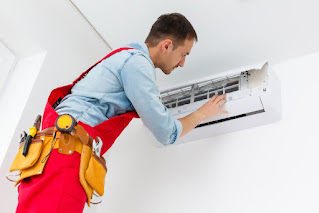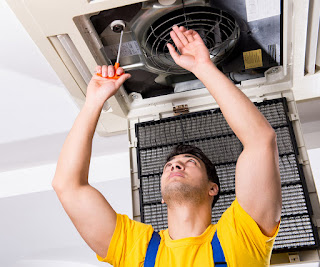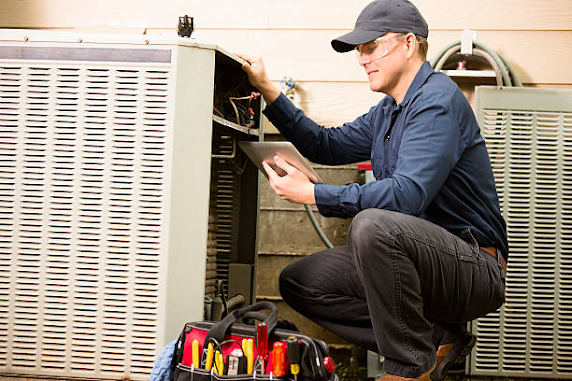What are the signs that you need to repair your AC?

Summertime is the time of year when ACs are working their hardest. If you're noticing that your AC isn't cooling your house as efficiently as it used to, or if it's making strange noises, it might be time to repair your air conditioner. Here are four signs that your AC needs some attention.
As the warmer months come around, it's normal for people to turn up their ACs so that they can stay cool at home. However, problems with your AC can happen any time of year and will need to be fixed as soon as possible before you are stuck without air conditioning for an extended period of time. If you notice some common signs that your AC unit needs to be repaired, you will be able to address the situation before it gets worse.
The Compressor does not engage when you turn it on. If the compressor is faulty, both the inside and outside units will have issues turning on. This can result in a lack of air conditioning or very slow cooling if the compressor is working on and off.
Your inside fan does not work. If the inside unit doesn't turn on, you will usually see a light (if it has one) as well as some other signs such as unusual beeping or humming noises coming from your unit. Usually, if the fan isn't turning then the compressor cannot either.
Water is leaking from your AC and/or it is very humid around the unit. If you find water near your outside unit, first make sure your downspouts are clear and angled away from the house so that water cannot build up on them or flow back toward your home; if this doesn't fix the problem, then you may have a leak. If you are experiencing humid conditions near your outside unit, make sure that piping is draining properly toward the ground and not pooling water inside or near the unit.
Your home has unusual odors coming from it during or after AC use. There are a variety of reasons why your air might smell funny after your AC turns on: If the unit has mold in it, your air could have a musty odor when it is running; if the inside filter is clogged and dirty, this will restrict airflow and lead to poor indoor air quality.

The unit outside looks damaged (cracked or broken sections). If your AC is damaged on the exterior, it is unlikely that you will be able to fix the problem since most of the parts are internal. If this happens, you should contact an HVAC professional as soon as possible so that they can come and replace your ac unit before it completely stops working.
The unit outside is very dirty. Dirt on the outside of your AC can be problematic for a variety of reasons: Dust buildup restricts airflow and this will cause your home to heat up faster than normal during summer months; also, if the unit has dirt piled up on top of it, birds and squirrels may try to build nests in there.
Your utility bills are abnormally high. When your AC is not working properly, it will need to work harder to keep your home cool and as a result, your energy bills will be much higher than normal. If you notice this happening, you should contact an HVAC professional to repair the issue before it gets worse and/or becomes an expensive problem.
Your utility bills are abnormally high and/or your AC is not keeping your home as cool as normal. If you notice a problem with your AC, there is likely a reason for it and not addressing the issue will lead to bigger problems or costly expenses down the line. Contact an HVAC professional today so that they can repair your unit before it overheats and becomes a much larger (and more expensive) repair job!
Conclusion: If you see any of the signs mentioned in this blog post, it might be time to call a professional for an AC repair. Let us know and we’ll come out and help you get your system back up and running. You won’t regret calling!Author Bio:- Robert Wong
Robot is a marketing manager at EZ Electric. He has an interest in writing articles related to HVAC installation, maintenance, and repairs. The HVAC system has made our life convenient regardless of the climatic changes. Read Robot’s articles to know step-by-step installation guide for ceiling fan, smoke detector, lighting and electrical appliances in California as well as how to repair them in case of malfunctioning or breakdown.

.jpg)
Comments
Post a Comment